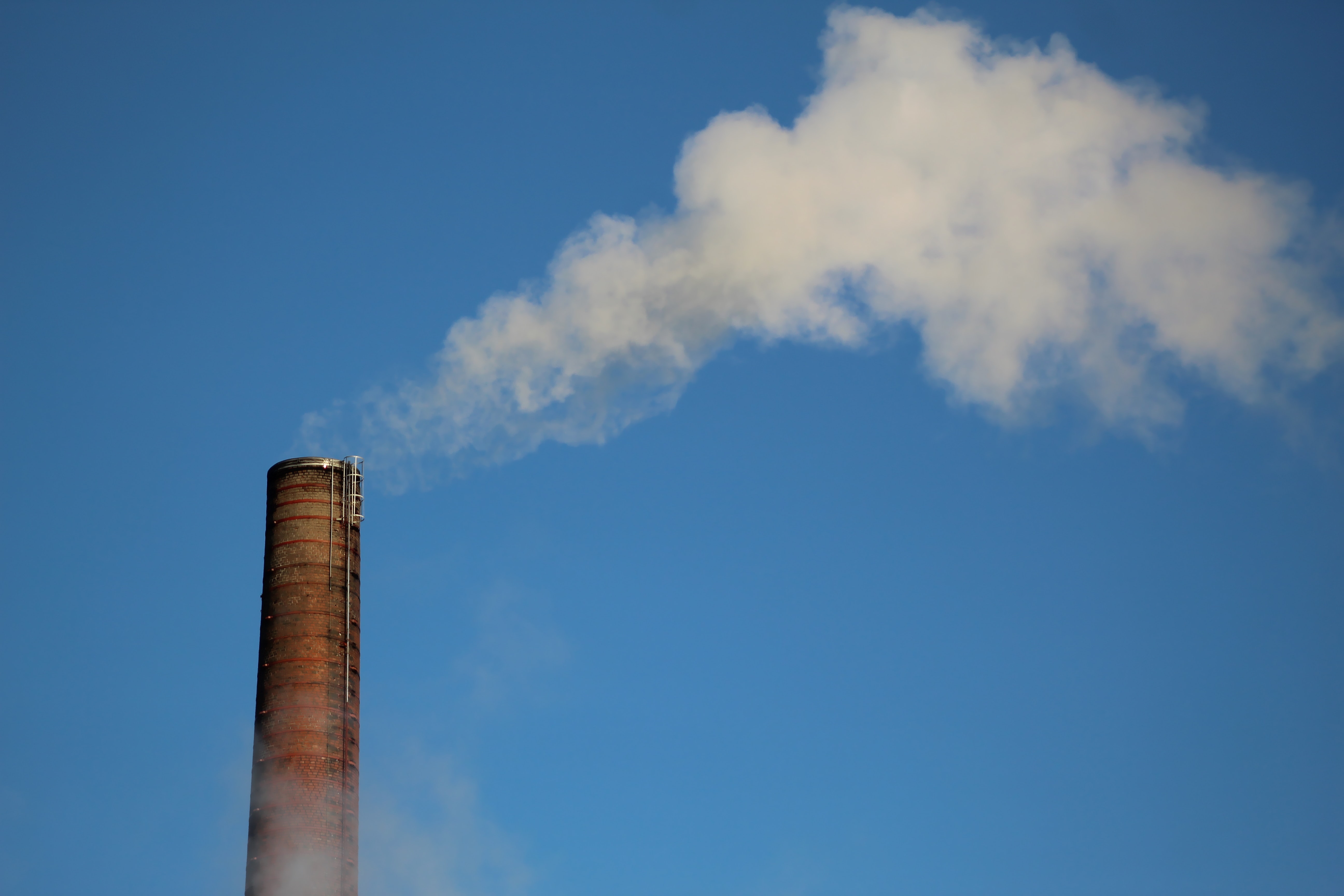More than a century ago, a distant relative of Swedish climate activist Greta Thunberg figured out that greenhouse gases from burning coal could push up world temperatures.
On August 9, 2021, after decades amassing evidence, a United Nations panel vindicated the theories of Swedish chemist Svante Arrhenius by concluding that we’re definitely to blame for heating the planet.
But why did it take so long, when Arrhenius worked out the basics in 1896? Don’t people know that fossil fuels cause global warming?
Grouping governments and hundreds of climate scientists, the Intergovernmental Panel on Climate Change (IPCC) concluded on Monday for the first time that it is “unequivocal” — beyond a shadow of doubt — “that human influence has warmed the atmosphere, ocean and land.”
The bleak report also said that some changes under way may be irreversible, such as sea-level rise caused by the melting of ice sheets on Greenland and Antarctica, and that we are on track to exceed critical temperature thresholds in the period 2021-2040.
Blame for the climate crisis now falls squarely on our shoulders.
The problem in definitely linking warming to man-made greenhouse gases has been that there have always been freak storms, heatwaves, downpours and floods, allowing a sliver of doubt in previous IPCC reports about whether the main driver might be humanity or some other unknown factors in nature.
The evidence is now overwhelming, partly because there are so many off-the-chart extreme events that would be expected once every 100 or 1,000 years in a normal climate.
In 2021, for instance, scientists found that a heatwave this year in parts of Canada and the United States, with sweltering temperatures close to 50C, would have been “virtually impossible“ without humanity’s greenhouse gases.
“Our fingerprints are all over the climate system,” Ben Santer, a top climate scientist at the Lawrence Livermore National Laboratory in California, told me in an email, calling the new findings the culmination of a revolution in the science of global warming.
Santer led a chapter for a landmark IPCC report in 1995 that first, tentatively, linked mankind to climate change. The famous sentence said that “the balance of evidence suggests a discernible human influence on global climate.”
From that moment, Santer wrote, “humans were no longer innocent bystanders in the climate system. By burning fossil fuels and increasing atmospheric concentrations of heat-trapping greenhouse gases, humans were changing Earth’s climate.”
But it was not immediately embraced. “It met with the fate of other paradigm-shifting findings — it was fiercely criticized by individuals, corporations and countries who perceived that their business interests might be threatened,” he said.
Lawsuits could target fossil-fuel producers.
Now, the “unequivocal” evidence will add pressure for action to limit greenhouse gas emissions, possibly lawsuits against big emitters of greenhouse gases.
Some lawyers liken the history of the rising certainty about climate change to findings last century linking smoking to lung cancer, spurring successful billion-dollar lawsuits against tobacco companies.
There are already almost 2,000 lawsuits worldwide about climate change, often against fossil-fuel producers, 1,408 in the United States and 450 elsewhere in the world, according to a database by the Sabin Center for Climate Change Law.
Levi Draheim, 14, is among a group of young people suing the U.S. state of Florida. The lawsuit says the current fossil-fuel energy system violates young people’s constitutional rights to life, liberty and property.
Draheim sees some glimmers of hope, partly because of pressure from young people. “I do see hope in that so many people have been willing to take action,” he told me. “But I also know that the action so far is not enough.”
Lingering reluctance to invest in clean power.
Despite mounting evidence, many nations are reluctant to invest massively in renewable energies such as solar and wind power and abandon fossil fuels — especially OPEC oil exporters who depend on oil and gas revenues.
Many poorer countries say they need to use more energy to raise living standards and point out that rich nations have repeatedly agreed to take the lead in fighting climate change.
And the media have often wrongly over-represented the views of climate sceptics, giving a misleading sense of controversy about the causes of global warming. Sceptics like to quote ageing evidence, like a 1975 story headlined “The Cooling World” in Newsweek magazine, about signs that we were entering a chillier period.
Arrhenius was among the first scientists to lay the groundwork for the IPCC conclusions. In 1896, he wrote a study that showed how rising amounts of carbon dioxide were linked to higher temperatures. He later concluded that burning of coal could cause a “noticeable increase” in carbon levels if kept up over centuries.
Thunberg, founder of the #FridaysforFuture global climate movement by young people, is distantly related to him. Her father, Svante Thunberg, once wrote that he didn’t know the exact family relationship but that “I was named Svante (after Arrhenius) as a request from my grandparents,” who were related to Arrhenius’ mother.
Among landmarks in understanding climate change after Arrhenius, U.S. President Lyndon Johnson warned in 1965 that “this generation has altered the composition of the atmosphere on a global scale through … a steady increase in carbon dioxide from the burning of fossil fuels.”
‘The times are changing.’
But doubts about our responsibility are unlikely to end with the IPCC’s new findings. Former U.S. President Donald Trump, who favours jobs in the coal industry, sometimes dismissed man-made climate change as a hoax. Before winning office, he wrote on Twitter that global warming was a concept dreamt up by China to hurt U.S. industries.
“Climate denialism is still alive and well in the United States Congress. And in the U.S., the credibility of climate science is still being challenged by powerful individuals,” Santer said.
“But the times are changing. The concerning changes in extreme events — particularly heat waves, drought, floods and wildfires — are diminishing the space in which denialism can thrive,” he wrote.
Backing up that idea, one recent survey found that 24% of Americans are “alarmed” by climate change, double the proportion five years ago. Yet it also documented that sizeable minorities are still dismissive or doubtful.
Governments will have a chance to ratchet up their actions to tackle climate change at a summit in Glasgow, Scotland, in November, building on the 2015 Paris Agreement that seeks to limit rising temperatures to “well below” two degrees Celsius above pre-industrial times, while pursuing efforts for 1.5C.
By the end of July, however, only 54% of countries had submitted new or updated climate plans to the UN. Big emitters including China, India and Brazil were among those that did not meet a July deadline.
“Far from satisfactory,” UN Climate Chief Patricia Espinosa wrote.
Alister Doyle is a British freelance writer based in Oslo who worked with Reuters for more than three decades, including as the company’s first environment correspondent from 2004-19. He has worked in more than 50 nations, mostly in Europe and Latin America, and spent a year at the Massachusetts Institute of Technology on a Knight Science Journalism fellowship from 2011-12. Among other stories, he landed with British scientists in a small plane on an Antarctic ice shelf in 2009 — weeks before it cracked up into the ocean.
This story, originally published by News Decoder, has been shared as part of World News Day 2021, a global campaign to highlight the critical role of fact-based journalism in providing trustworthy news and information in service of humanity. #JournalismMatters.




